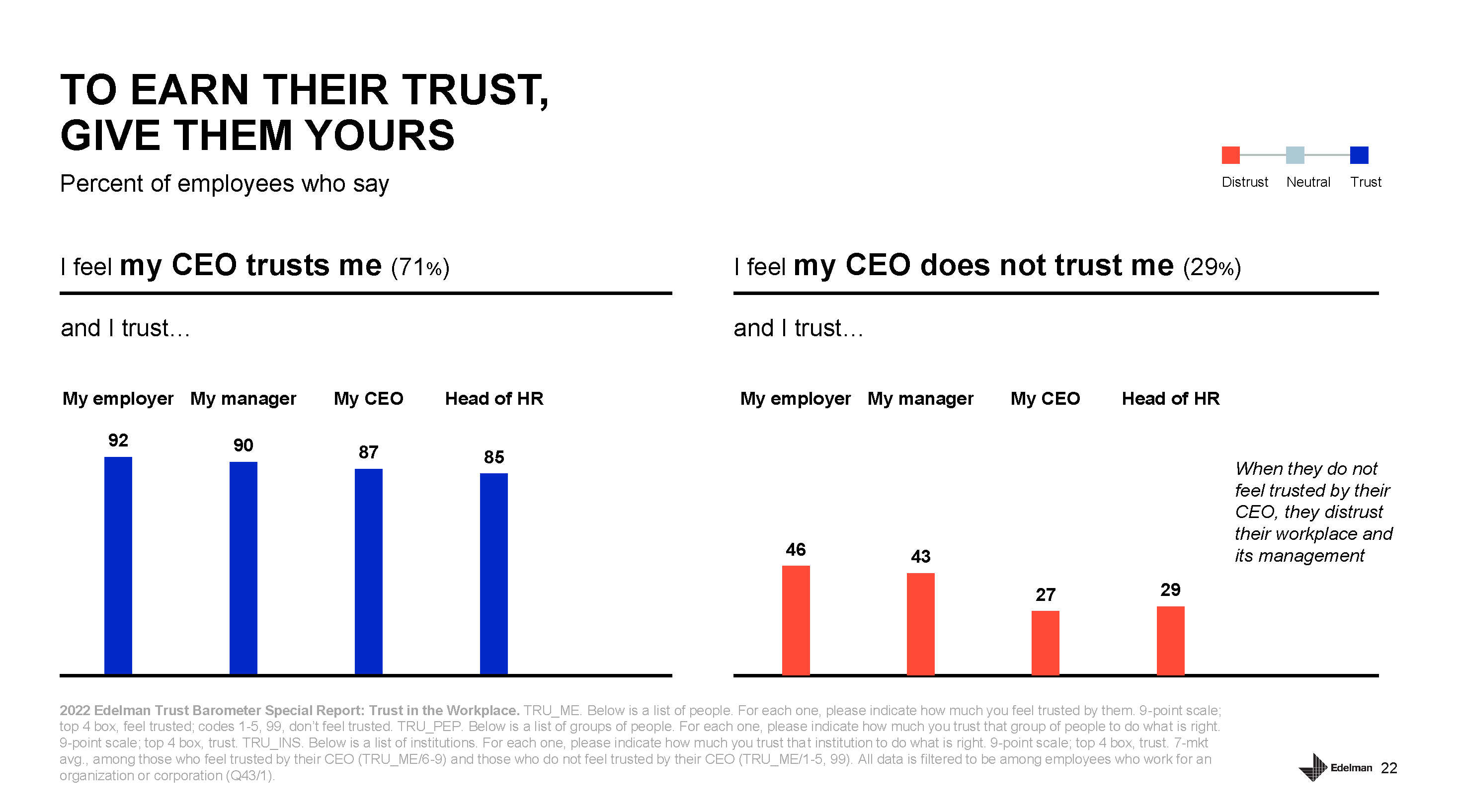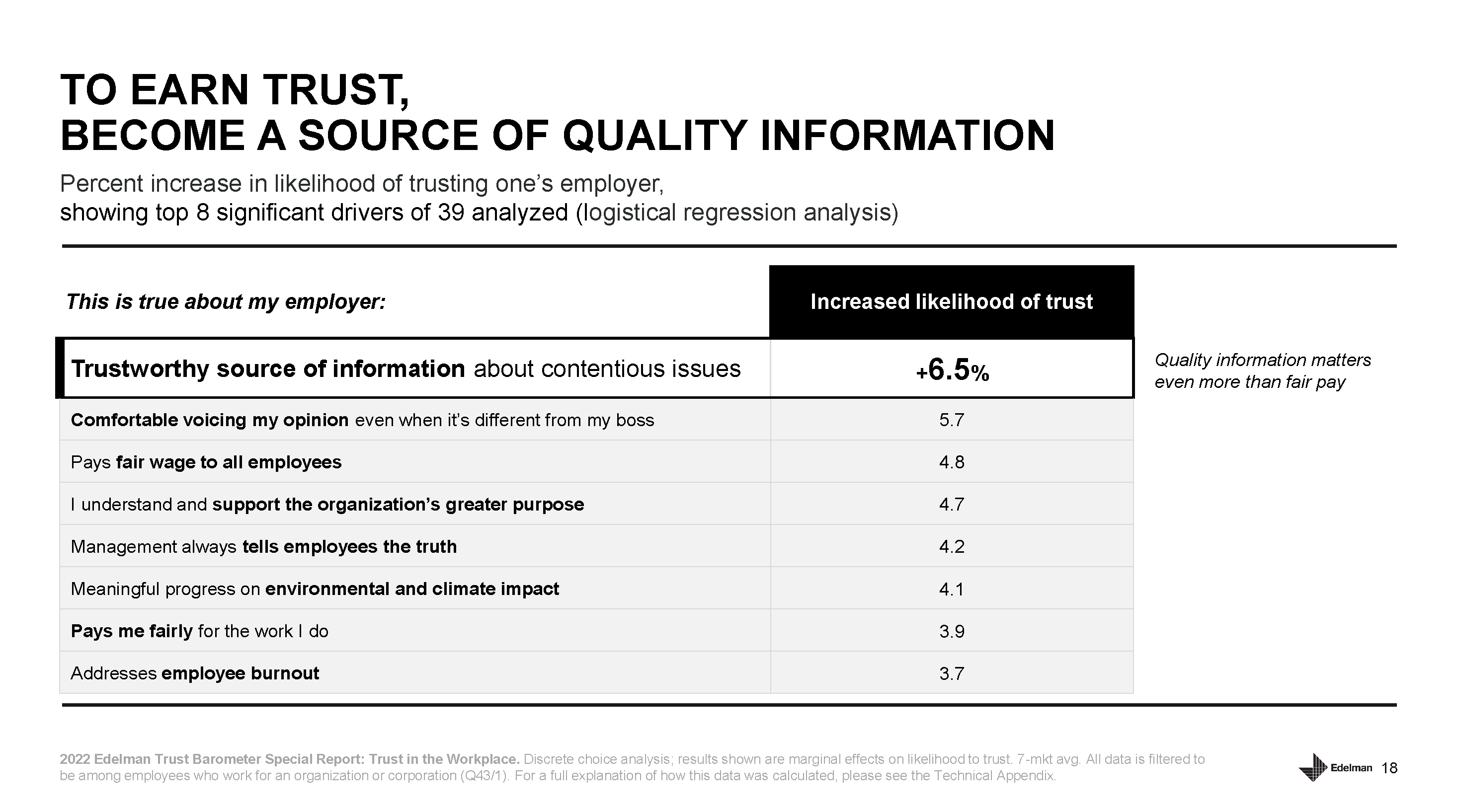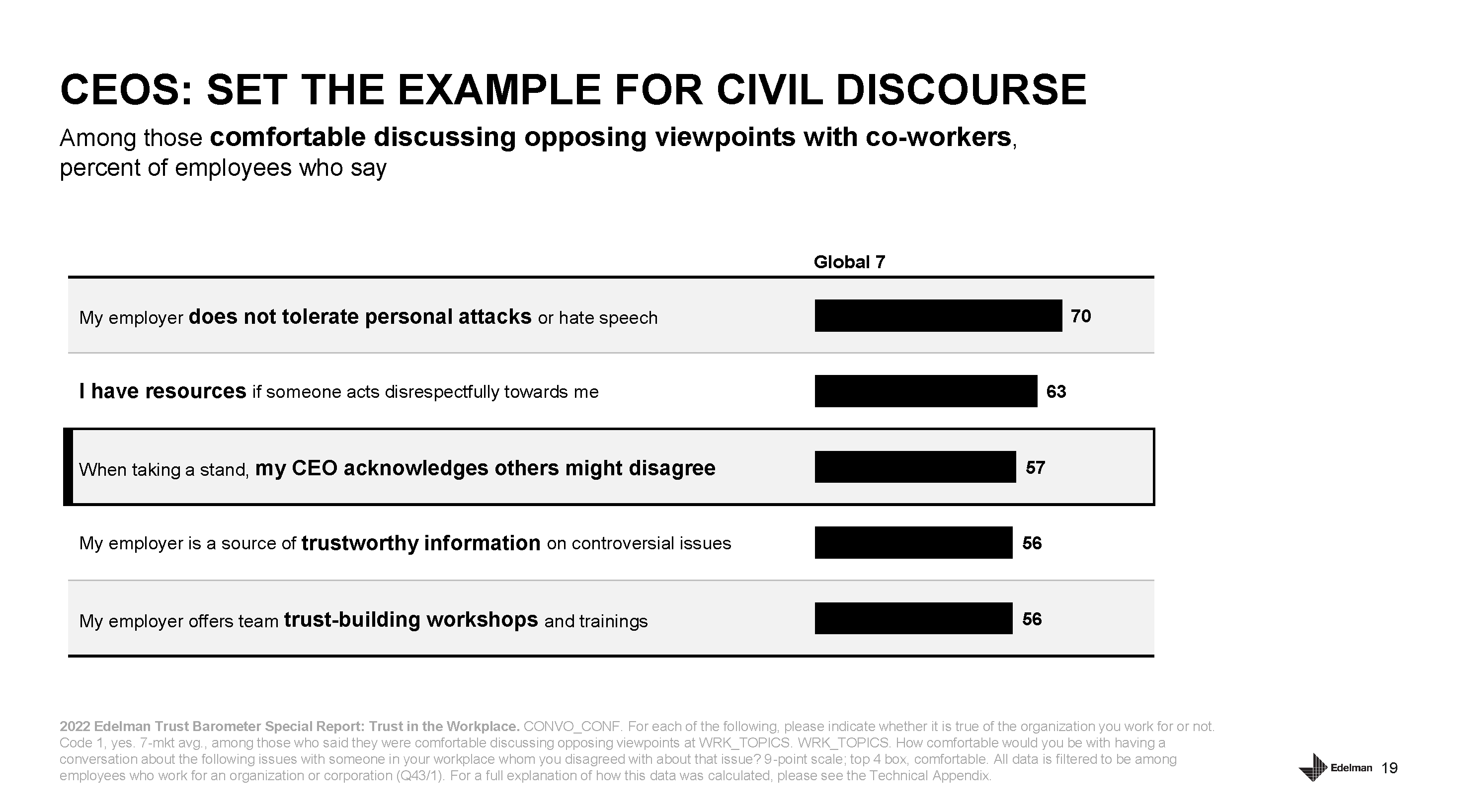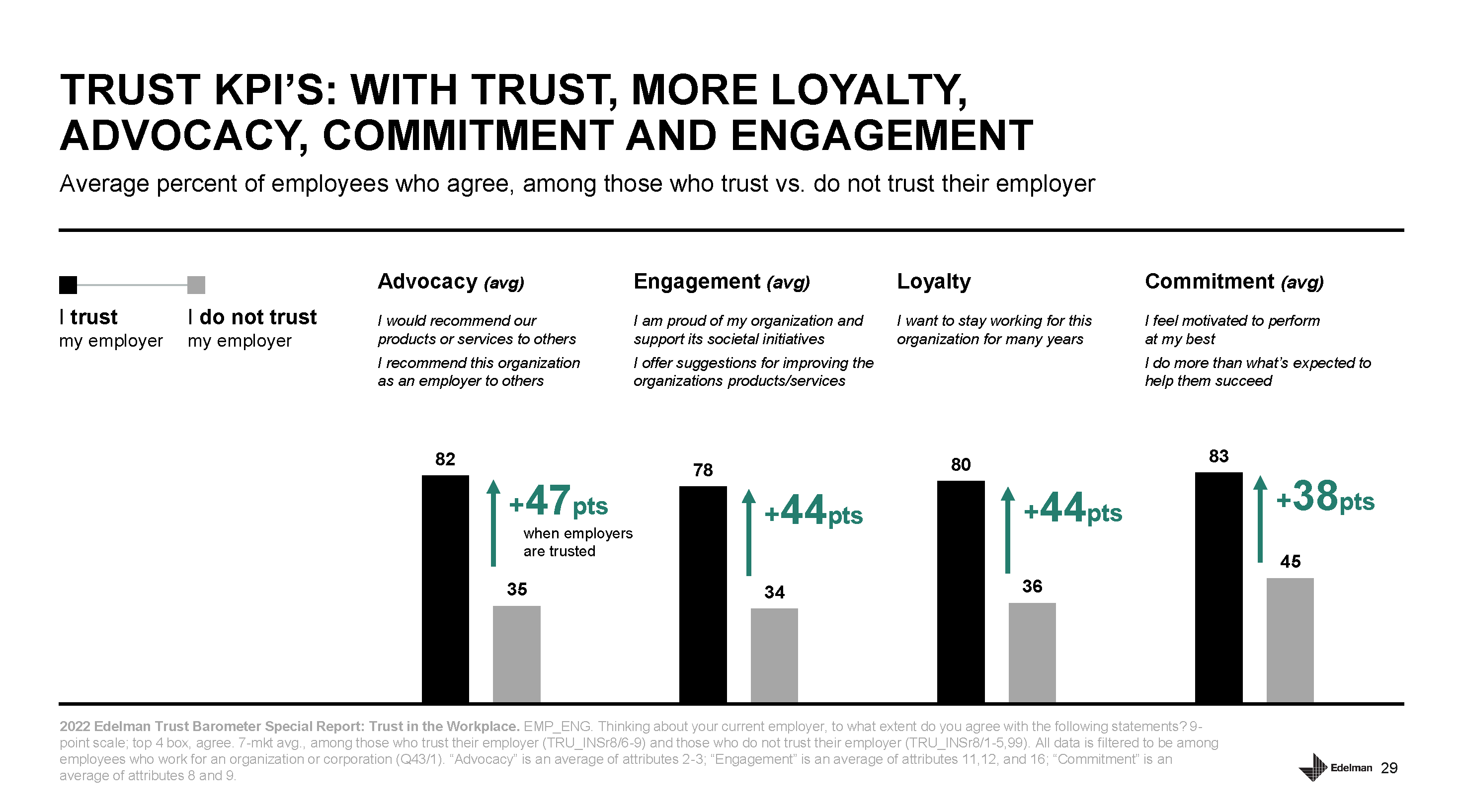Amongst the many surprising insights in the 2022 Edelman Trust Barometer Special Report: Trust in the Workplace, this is the most powerful: To earn employee trust, you must first give them yours.
To earn employee trust, you must first give them yours.
Why is this important? Among the 71 percent of employees who said they feel their CEO trusts them, employee trust is remarkably high. But when employees don’t feel CEO trust, the picture changes drastically — they distrust the workplace and its management, potentially giving rise to all manner of workplace ills — from productivity losses to union organizing, to activism that wields material impact.

The importance of employee trust should not be underestimated. Here’s the danger in doing so: While related to engagement, trust is actually a forward-looking indicator. At its core, trust is the intention to accept risk in a relationship: The trustor (employee) accepts a level of potential volatility in their relationship with their employer. Trust allows an organization to take responsible risk, and if it makes mistakes, to rebound from them. This makes trust the ultimate currency in the war for top talent. If, for example, you need workforce patience in getting return to office right, you won’t experience detrimental attrition.
How To Demonstrate Trust in Your People
Seek out and act upon worker voice
Eighty percent of employees globally say they have a strong expectation that it should “be easy for me to provide input to my employer,” and 75 percent expect their employer to include employees in the planning process. But they also feel that their workplaces aren’t living up to these expectations. As employees gain footing in the multi-stakeholder ecosystem, elevating the worker voice to governance levels has become a necessity for corporations.

Actively seeking out worker voice and incorporating it into decision-making gives employees a sense of agency — with the lack thereof at the root of so-called “quiet quitting.” People disengage and exert less discretionary effort when they lose influence — and the sense of hope that feeds it.
Be A Trusted Source of Reliable Information — Model Civil Discourse
Our new Trust Barometer research examined 39 different characteristics of an organization that could have an impact on how much people trust their employers. We found that the top driver of an increasing likelihood to trust one’s employer is being a trustworthy source of information about contentious issues.
The number-two trust driver is when employees feel comfortable voicing their opinions even when they’re different from the boss’ perspective. As you can see here, these are more likely to increase trust than paying a fair wage to all employees.

Because of the lack of trust in government and media, the workplace is now where employees expect societal problems to be addressed — and, likely solved. The fact that “employer media,” or internal communications, is the most believable source of information also speaks to the expectation that employers must set the example of civil discourse. For CEOs, part of modeling civil discourse is showcasing how they can recognize voices and opinions other than their own, then take them into serious consideration and act upon them.

Don’t Resort To Workforce Surveillance
Workforce surveillance reduces employees to keyboard strokes or minutes “on task,” stripping them of their humanity. This is a quick path to distrust in an era when bringing one’s whole self to work is the expectation and psychological safety is essential. Focus instead on what actually motivates people in the workplace: the opportunity to improve and master skills, a clear sense of shared purpose that aligns to personal values, a work environment that offers autonomy, and the space and time to do their jobs well. In short, companies should focus on macro-organizational effectiveness over tactical measures of efficiency.
If investing in technology to manage productivity is a must, deploy those funds for other initiatives. Use predictive analytics to streamline a company’s processes, or AI-empowered productivity that can almost always go beyond any time saved (and trust lost) from trying to micro-manage employee behavior.

Foster Transparency
Transparency is especially important to Gen Z, the workforce segment destined to be your next era of leaders. For a generation that has grown up with instantaneous answers, transparency is an expectation around fair wages, gender equity, diversity, sustainability disclosures, and even governance issues. Why take an empathic perspective through the Gen Z lens? Our research shows that younger employees exert outsize influence over colleagues of other demographics. And they can turn moments into movements.
As companies prepare for a global recession, it’s tempting to intuit that the so-called “belief-driven employee” was a product of a hot market for talent. But our research shows even an economic downturn isn’t dissuading employees from seeking organizations that align with their values, and earning their trust is more important — and more nuanced — than ever.
Use your organizational purpose as a compass to help navigate which issues align with your business mission. Connect your people to social impact via their jobs. And don’t just voice an opinion on societal issues, but take meaningful actions on inclusion, employee well-being, fair wages, the climate — with trust at the center, and as your compass.
Cydney Roach is Global Chair of Employee Experience.

